The US military killed 14 people in strikes on four vessels allegedly transporting narcotics in the eastern Pacific Ocean, marking the deadliest single day since President Donald Trump began his controversial campaign against drug trafficking in South American waters, Defence Secretary Pete Hegseth announced on October 28.
The three strikes, the first time multiple attacks were conducted in one day, brought the death toll from the Trump administration's nearly two-month campaign to at least 57 people across 13 disclosed operations. One person survived the attacks in international waters, with Mexican authorities assuming responsibility for coordinating the rescue, Hegseth said in a social media post.
"The four vessels were known by our intelligence apparatus, transiting along known narco-trafficking routes, and carrying narcotics," Hegseth wrote. Eight men died in the first strike against two boats, four men died in a second strike, and three men died in a third strike, he stated.
Mexican President Claudia Sheinbaum condemned the attacks at her daily press conference on October 28, saying she had asked Mexico's foreign affairs secretary and navy to meet with the US ambassador to discuss the issue. "We do not agree with these attacks," she said. "We want all international treaties to be respected."
Mexico's navy was conducting search and rescue operations approximately 400 miles southwest of Acapulco, according to a statement issued by the military, suggesting the strike may have occurred closer to Mexico's coast than the Colombian waters initially referenced by a Pentagon official, AP reported.
The strikes have strained ties with historic allies such as Colombia, whose intelligence is crucial to American anti-narcotics operations. On October 24, the Trump administration imposed sanctions on Colombian President Gustavo Petro, his family and a government member over accusations of involvement in the global drug trade, which Petro vehemently denies.
Hegseth posted footage showing two boats moving through the water, one visibly laden with parcels or bundles, before both exploded and burned. The third strike targeted a pair of stationary boats alongside each other, which appeared largely empty with at least two people visible before an explosion engulfed both vessels.
The Defence Secretary continued drawing parallels between military actions against drug trafficking and the war on terrorism following the September 11 2001 attacks. "These narco-terrorists have killed more Americans than Al-Qaeda, and they will be treated the same," Hegseth claimed.
Trump has justified the strikes by asserting the US is engaged in an "armed conflict" with drug cartels and declaring the criminal organisations unlawful combatants, relying on the same legal authority used by President George W Bush's administration for the war on terrorism.
In Washington, the attacks sparked a debate over their legality and objectives. Lawmakers and human rights organisations questioned the constitutionality of attacks in international waters and sought clarification on the designation of the targeted organisations.
The White House has provided no evidence to support its claims about the boats, their connection to drug cartels, or the identity of the people killed in the strikes that began in early September and had been spaced weeks apart.
On October 24, the Pentagon announced it was dispatching the aircraft carrier USS Gerald R Ford to join eight warships and thousands of troops already in the Caribbean region. Venezuelan President Nicolás Maduro, whom the US has accused of narcoterrorism, said the US government was "fabricating" a war against him, ultimately aimed at toppling his regime.
Secretary of State Marco Rubio insisted the US is conducting a counterdrug operation whilst also accusing Maduro's government of allowing and participating in the shipment of narcotics, though US official data shows the amount of cocaine coming from Venezuela is negligible, while fentanyl is mostly trafficked through Mexico. The US military also flew a pair of supersonic heavy bombers to Venezuela's coast.
Trump has said he possesses the "legal authority" to carry out attacks on alleged drug-carrying boats and suggested similar strikes could soon be extended to land. The escalating campaign and military buildup off the Venezuelan coast have triggered speculation the moves are aimed at ousting Maduro, whose authoritarian government the US and many countries in the region deem illegitimate following last year's disputed election.
News
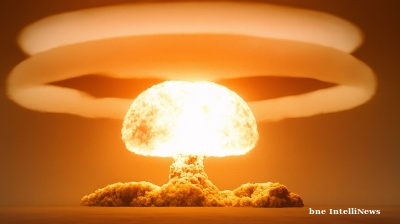
Russia withdraws from Cold War plutonium disposal pact with US
Russian President Vladimir Putin has formally withdrawn from a key arms control agreement with the United States governing the disposal of weapons-grade plutonium, as the few remaining nuclear security accords between the two powers vanish.
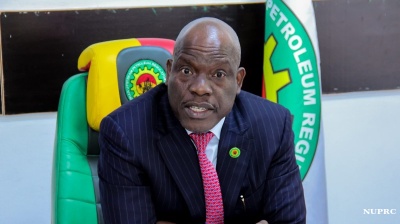
Nigeria’s NUPRC holds exploratory talks with Bank of America on upstream financing
Nigeria's upstream regulator, NUPRC, has held exploratory talks with Bank of America as the country looks to attract new capital and revive crude output, after falling short of its OPEC+ quota.
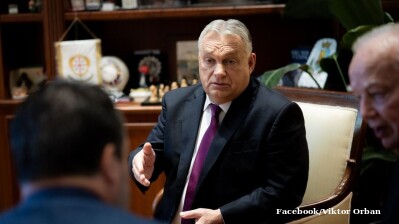
European diplomacy should have stopped war, Orban tells Italian broadcaster
The job of European diplomacy would have been stopping the war in Ukraine, but Brussels has become "irrelevant" by deciding not to negotiate, Prime Minister Viktor Orban told an Italian TV channel on October 28.
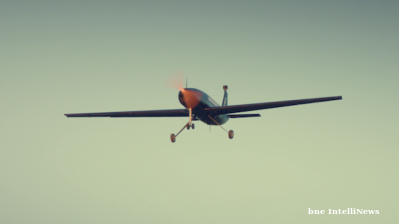
Zelenskiy allows the start of controlled arms exports
President Volodymyr Zelenskiy ordered Ukraine’s Ministry of Defence to begin the controlled export of domestically produced weapons starting in November for the first time in the hope of boosting production and attracting investment.
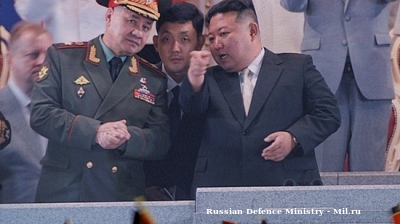
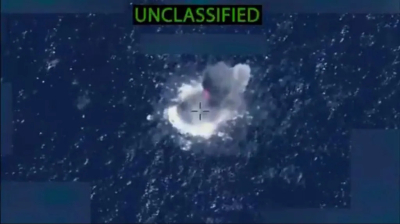
_1761305900.jpg)
_1761050969.jpg)
_Cropped_(1).jpg)